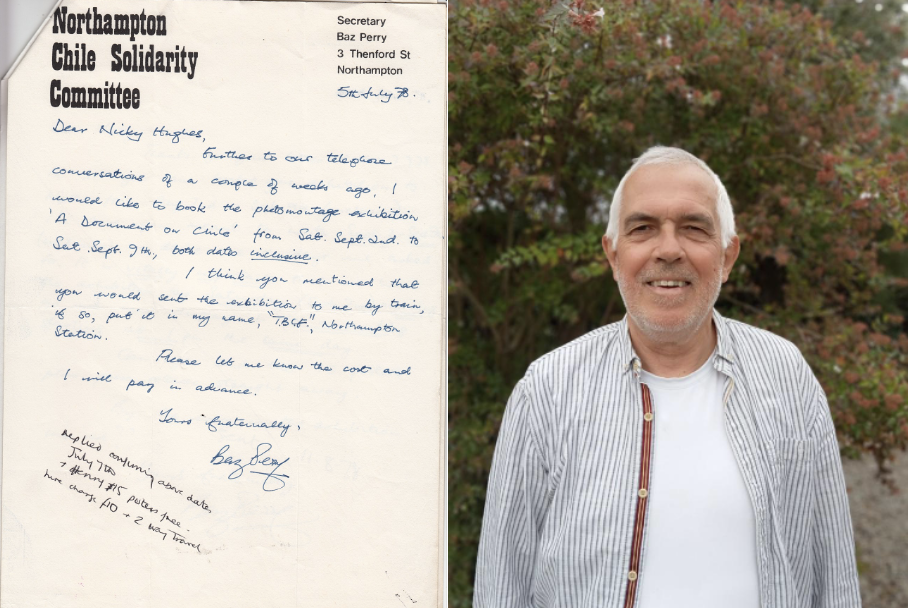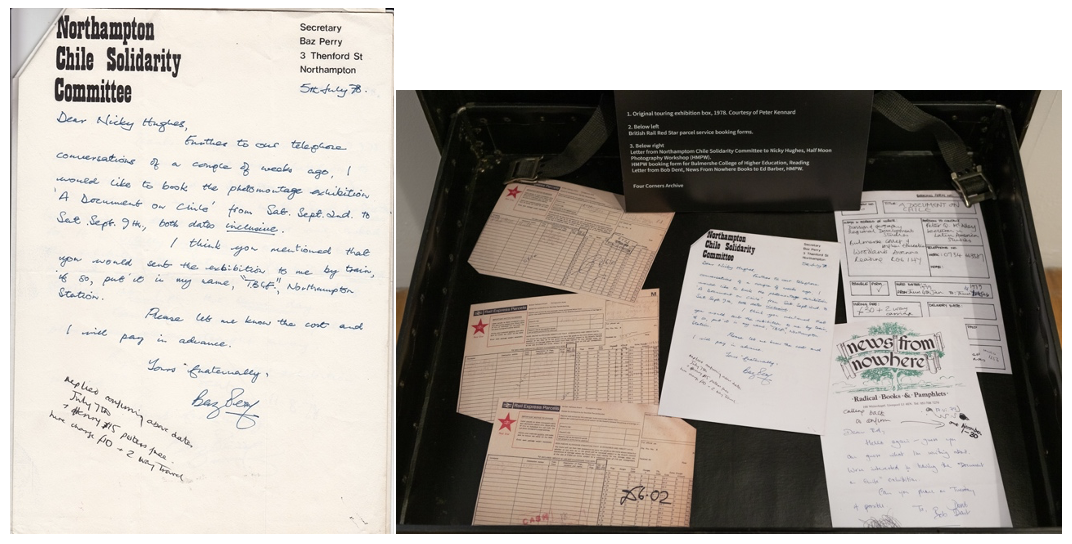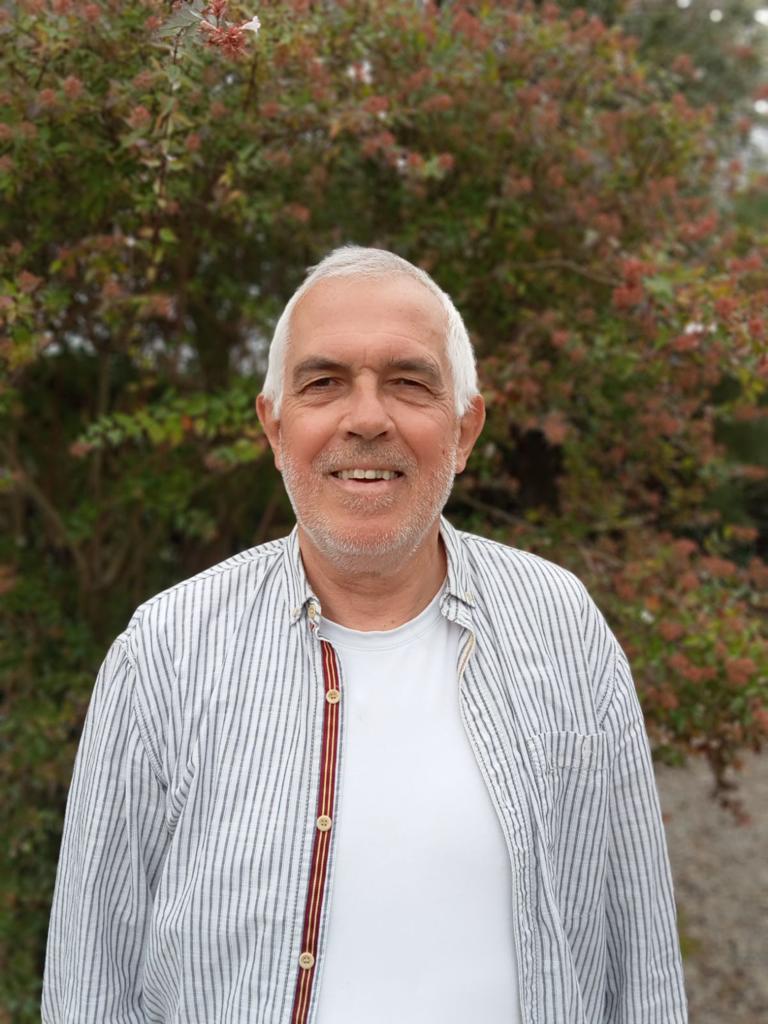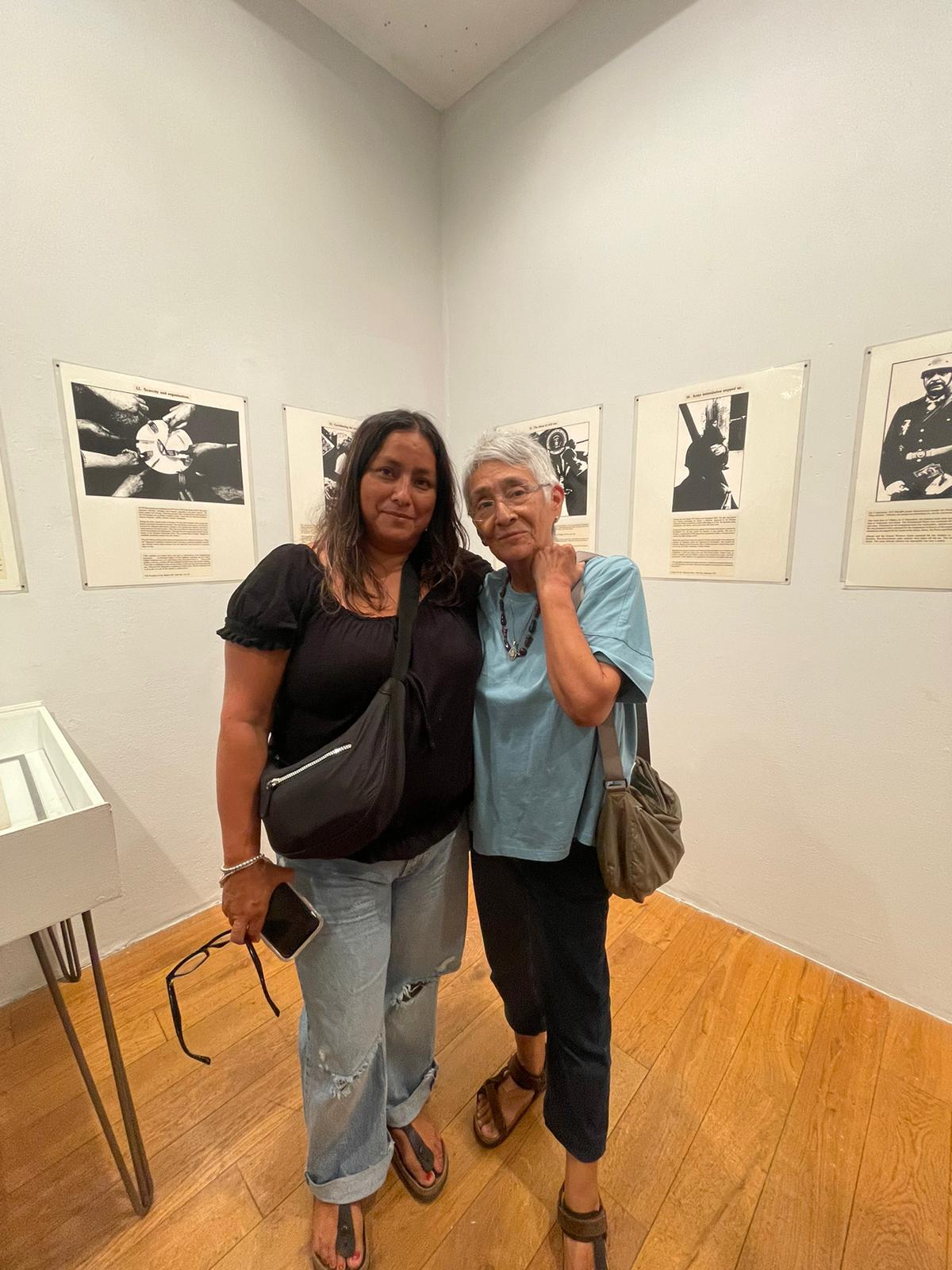Memory is a political act

Isabel Cortes Colque describes how the exhibition 'Chile 50' relates to her personal history
In May 1977, I arrived in the UK with my family from Chile. We were fleeing Pinochet’s brutal dictatorship, which had overthrown the democratically-elected socialist government of Salvador Allende. I was five years old.
In September 2023, fifty years after the military coup, I visited Four Corners Gallery to see Peter Kennard’s photomontage exhibit, A Document on Chile, part of the exhibition Chile 50: Political Art, Solidarity and Resistance.
I had tweeted about the exhibition after uploading the details to Chile 50 years, an events page I set up with Maria Vasquez-Aguilar from Sheffield. Like me, she is a second-generation Chilean 'fugee', who watched in wonder as events to mark the 50th anniversary erupted across the country. This exhibition was one event in a series that I described in my tweet as “a cultural, and political explosion”, but it was so much more than the 280-character limit tweet could do justice to.
Peter Kennard uses photomontage and text to trace Chile’s recent traumatic history - he also happens to trace my personal history as well.

Quilpue Isabel and Nicolas, 1974
In the 1970s, my mum was a MAPU (Movimiento de Accion Popular) militant and an active trade union member involved in taking worker control of Ralston Purina, the factory she worked at. Purina, a food multinational, was one of the first industries to be nationalised under Allende’s Popular Unity government, and one of five multinationals to meet with the US Secretary of State in October 1971.

Peter Kennard, Laminated panel from 'A Document on Chile', 1978
The exhibition makes a reference to the Industrial belts (Cordones Industriales) set up by organised workers. My parents were part of the Cordon Industrial in Limache, and on 11 September 1973, after hearing the news of the military coup, my mother went to her workplace to defend it as planned. She was six months pregnant with my brother Nicolas at the time.

Peter Kennard, Laminated panel from 'A Document on Chile', 1978
In the aftermath of the coup, my mother’s comrades - students, peasant leaders, trade unionists and priests - were “disappeared”, executed or taken to detention camps as part of a repressive and brutal campaign.

Early 1973, Juani knitting baby clothes
My father, who worked at CORA (Corporación de la Reforma Agraria), the agrarian reform programme set up by Allende’s government, was detained and tortured twice before fleeing to Argentina, where he would stay to join the resistance. My mother, after a year in Buenos Aires with young children, saw and felt the repression of the Argentine coup in 1976, part of Operation Condor, and had no choice but to leave.

Isabel, Buenos Aires, 1976
We were among the hundreds of thousands of Chileans who were forced to leave their homes after the coup. When we arrived in the UK, committees made up of trade union members, the Labour Party, the Communist Party, Amnesty International and the Quakers were there to welcome us. Under the umbrella of the Chile Solidarity Campaign, these welcome committees spread the news of the resistance and repression in Chile to build solidarity and pushed for Kennard’s work to travel around the UK.
One exhibit in Four Corners’ exhibition that blew me away was a letter from Baz Perry, who had been the Northampton Chile Solidarity campaign secretary.

Letter from Baz Perry, Northampton Chile Solidarity Campaign, booking Peter Kennard's 'A Document on Chile', 1978
Just a few months back I was sitting at Baz’s kitchen table with my friend Maria, telling him, for the very first time, what he had meant to me as a child, with no toys, no homeland, no extended family and who couldn’t speak English.

Baz Perry today
Baz Perry and his partner Les alongside their comrades - a group of surrogate uncles and aunts that included John and Marie Dickie - were the people who welcomed my family to Northampton. They helped us with language classes, helped my mum find a job, bought us toys, offered us friendship, love, and laughter and introduced us to the joys of camping in a wet and windy UK. They helped us rebuild our lives. All this while spreading the word about the resistance using Peter Kennard’s laminated exhibition.
Resistance and solidarity are not abstract concepts for Chilean exiles, and I am fortunate to have learnt from the best.

Isabel, Juani and Nicolas, May Day rally, London 2022
My internationalist mum did what she knew how to do when she arrived here. She got stuck in, got involved, and showed me how to fight. We went to Greenham Common, anti-apartheid rallies, supported the miners strikes, British Troops out of Ireland movement, and the Nicaragua and Cuba Solidarity campaigns.

Isabel and Juani at Four Corners Gallery, September 2023
From an early age I learnt about the power of organised labour. At the time, truckers and dockers, members of the Transport and General Workers’ Union (now UNITE the Union), took a heroic stand when they refused to load cargo and transport goods from Chile. I remember how these huge, burly truckers would buy me a packet of crisps and cans of pop as they welcomed us into their working men's club. At a time when the National Front were known to spray “Pa*is go home” on the walls, they became my bodyguards as they made me feel safe.
The elders in my community were shanty town organisers, political activists, teachers, trade unionists, academics, students and journalists. When Pinochet was arrested in London in 1998, we were ready. First and second-generation Chileans, with the support of our solidarity networks, campaigned tirelessly for his extradition to Spain to face charges of genocide and crimes against humanity.

London, Royal Courts of Justice, 1998. Photograph: Stella Franceskides
Truth be told, from the minute we stepped off that plane we haven’t stopped fighting and learning how to keep resisting and organising. I have learnt that memory is a political act, a weapon to fight against the institutional amnesia that has prevented justice from being done in Chile. I know that resistance comes in many forms and that solidarity is a verb, practical and always reciprocal.
For these teachings, I thank my mum, FICA (my father), my Chilean exiled community, the trade unionists that have been ever-present throughout my life, and of course the Peter Kennard’s and the Baz’s of this world.
Written by Isabel Cortes Colque, daughter of Juani Colque and FICA, political exiles and political prisoners, member of ecomemoria and Bordando por la memoria, co-founder of Chile Solidarity Network and Chile 50 years, and trade union organiser at United Voices of the World.